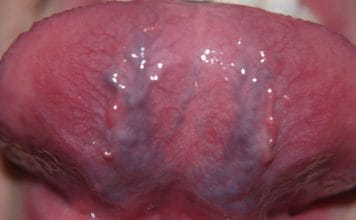In dental hygiene school, I was taught not to apologize to patients for things that weren’t my fault. This has been a struggle for me since I’m an over-apologizer. For example, if someone were to bump into me, I would apologize to them, and this got me wondering why I was apologizing for just existing.
Over-apologizing is a bad habit, especially in women. A 2010 study by the University of Waterloo, Canada, suggested that women apologize more than men because they have a lower threshold for what’s considered offensive behavior.1 The women in the study also rated their perceived offenses more severely than men.1 Many women are programmed from childhood to put the needs of others before their own and not to make a fuss.
Women deal with impossibly high expectations that we can’t live up to and then apologize when we cannot meet the mark. This is important to consider since the majority of dental hygienists are female.
Below are five suggestions for dental hygienists to break the habit of over-apologizing and what we can say instead.
1) Thank you
Instead of saying sorry, try reworking the sentence into one of gratitude. For example, if you are running behind schedule, say to the next patient, “Thank you for waiting,” instead of “I’m sorry about the wait.”
This will acknowledge the patient’s experience and praise them for being cooperative. Remember, you likely weren’t running late because you were goofing off. It is far more likely that you were waiting for the doctor to come in for an exam, the previous patient showed up late, or the office was understaffed. Give yourself some grace, and don’t hold yourself responsible for all these outside factors.
2) Offer solutions
Instead of taking responsibility for something that isn’t your fault, try focusing that energy on solving the problem. Imagine a patient in your chair has a complaint – the front office said they would email over a treatment plan after a patient’s last visit, but the patient never received an email.
Instead of apologizing, you could try to offer a solution. You could say, “Let’s get that fixed. I’ll ask (insert front office person’s name) to print out your treatment plan right now.” This will show that you listened to their complaint and can fix the problem.
In this example, the front office person might want to apologize since it was their mistake. But all you need to do is get the patient what they need. An unneeded apology in this situation may convey conflict avoidance and a reluctance to engage with the patient. An apology doesn’t solve anything. So, it makes more sense for the hygienist to take action in this scenario.
3) I understand
You can acknowledge a patient’s concern without making yourself culpable by saying, “I understand.” If a patient is overwhelmed by the amount of treatment they need, don’t say, “Sorry for the bad news.” Instead, say, “I understand that we gave you a lot of information to take in.” You can pair it with a solution such as, “We’ll organize all your treatment into phases and take things one step at a time.”
I use a version of “I understand” when I’m scaling a patient’s teeth, and they flinch at a sensitive spot. “Sensitive there? OK, got it. Let me see what I can do to make that more comfortable.” Acknowledging the patient’s perspective is important to building trust and rapport, but we can do this without an apology.
4) Offer explanations
Patients may have a better tolerance for discomfort or inconvenience if they are briefed about the situation. In the example we just looked at, a patient flinches because scaling is uncomfortable in one specific spot. You can address this discomfort with an explanation.
“Sensitive there? That’s the area of recession we were talking about. Those areas can be more sensitive because they don’t have a layer of enamel for insulation, which is the most mineralized tissue in the body. Instead, they are covered with cementum, which is less mineralized than enamel. Stimulation, like scaling, travels through tubules from the root surface to the nerve and can stimulate the nerve, like a zing.”
An apology would imply that the area is sensitive because you made a mistake. It undermines your skill. Offering an explanation helps the patient understand the situation and trust our clinical skills.
When offering explanations, make sure the patient knows their role and responsibilities in any issue they have. If the gingiva is tender where there’s subgingival calculus, explain that to them. Let them own their disease. We can offer solutions such as topical or injectable anesthetics to make them more comfortable, but they need to be informed that they are facing the consequences of their own hygiene habits.
5) Unfortunately
If a situation is beyond your control, try replacing the words “I’m sorry” with “unfortunately.” For example, if you are calling in sick, say, “Unfortunately, I’m feeling sick and cannot make it to work today.” Being sick is a normal part of life. You don’t need to say sorry for being human.
Another example is if you must cancel a patient’s appointment at the last minute due to a power outage or equipment malfunction – that’s bad luck and not a bad hygienist. Unless an employer specifically requests that you apologize, it isn’t needed. You can empathize with the recipients of bad news, but you don’t need to say you’re sorry. You did not cause the power outage or equipment malfunction.
In Closing
Apologizing expresses some culpability. Even if we apologize just to appease the other person and we don’t really mean it, it can be harmful. Many mental health professionals believe that the words we say about ourselves sink into our subconscious and can affect our mental health.2 Excessive apologizing can lead to feelings of inadequacy, resentment of others, and reluctance to stand up for ourselves.2
Hygienists tend to be perfectionists, but we can’t keep outside factors perfect. I think that constantly taking responsibility for things beyond our control will only lead us to feel like we are failing. By letting go of outside factors, we devote more time and energy to what we can control.
By not over-apologizing, we are sending a message that we are confident and secure in our abilities. It will help patients to respect us and trust our clinical skills. Also, by holding patients accountable for their own behaviors and disease processes, we can encourage them to make healthier choices.
If you make a mistake, then apologize. Take responsibility for your actions. But there is no need to say sorry for something that isn’t your fault.
Before you leave, check out the Today’s RDH self-study CE courses. All courses are peer-reviewed and non-sponsored to focus solely on high-quality education. Click here now.
Listen to the Today’s RDH Dental Hygiene Podcast Below:
References
- Schumann, K., Ross, M. Why Women Apologize More Than Men: Gender Differences in Thresholds for Perceiving Offensive Behavior. Psychological Science. 2010; 21(11): 1649-55. https://pubmed.ncbi.nlm.nih.gov/20855900/
- Estrada, J. (2024, February 20). Your Habit of Apologizing Too Much Could Be a Sign of A Bigger Issue. The Zoe Report. https://www.thezoereport.com/wellness/psychology-of-apologizing-too-much














